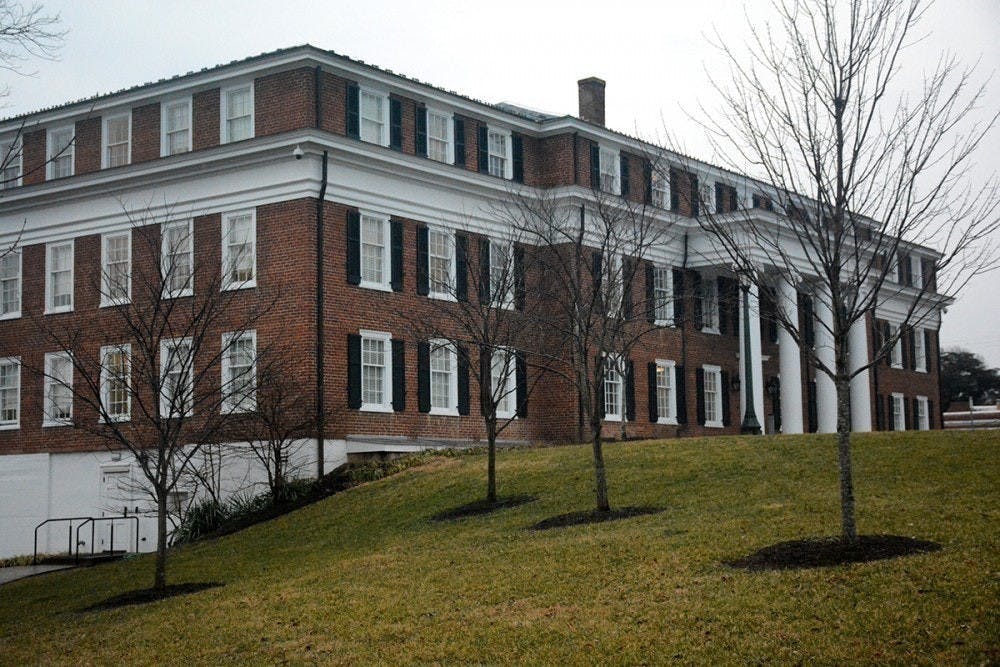Two months ago, C-ville Weekly published a review of the University’s years-long response to the now-infamous Rolling Stone article of 2014. The article detailed the original Rolling Stone piece, the University’s short- and long-term responses, the cultural shifts on Grounds and current student concerns over work that has yet to be done. C-ville Weekly asks the question, “What has (or hasn’t) changed at UVA since Rolling Stone?” I have an answer — not enough.
The original Rolling Stone article — titled “A Rape on Campus” — alleged that a University student was raped by multiple men at a fraternity party. When she reported the incident months later, the University failed to respond in a meaningful way. While the story was later found to be false after review by the Charlottesville Police Department, it nevertheless brought to light the pervasive culture of sexual assault on Grounds — especially among fraternities. Dozens of survivors of sexual violence shared their own stories in the online comments section of the Rolling Stone article, and the federal Office for Civil Rights began an investigation into the University’s Title IX policies — later finding them to be in violation of federal law. The Office for Civil Rights has initiated four investigations into the University’s Title IX policies and potential discrimination, two of which are still active.
The University took a number of steps in response to the Rolling Stone article. It temporarily suspended Greek Life organizations, overhauled its Title IX reporting and adjudication process and implemented a number of training modules and awareness events for first-year students. The culture surrounding sexual assault and prevention has also dramatically shifted. The Women’s Center and CAPS received increased funding and resource support from the University — allowing them to hire new staff and begin to offer new counseling and advocacy programs. Numerous prevention-based contracted independent organizations formed and others amplified their work to destigmatize sexual assault and educate students on consent, survivor support and reporting. While we have come far, we are nowhere near where we ought to be.
In just this past weekend alone, a sexual assault — which was an alleged multiple-assailant rape in on-Grounds housing — was reported to University authorities. The University’s Annual Fire Safety and Security Report, released in October, found that 28 incidents of rape, 16 of fondling, 30 of intimate partner violence and 43 of stalking were reported in the last year. These gut-wrenching reports and alarming statistics demonstrate that the work following Rolling Stone is far from over. While the University has made strides in survivor support and prevention, more must be done to educate students, prevent assault and support survivors.
There are numerous areas for improvement. The University only has one Program Coordinator for Prevention in the Office of Health Promotion — other universities have dedicated teams working on prevention programming. Staff and space restrictions in Counseling and Psychological Services limit students in the number, frequency and quality of sessions. Hazing, while technically illegal, remains practiced by some Greek Life organizations — the Office of Fraternity and Sorority Life often failing to adequately address violations. Additionally, the University’s incident reporting form requires a NetBadge login, which may deter survivors from filing.
There are a number of ways to further improve survivor support and prevention measures at the University. Although the University participates in a Campus Climate Survey, the Office for Equal Opportunity and Civil Rights should establish an annual review and analysis of its Title IX reporting and adjudication policies to ensure equity and adequate support measures. University administration must hire a larger team of prevention experts to strengthen and expand its programs. The Office of Fraternity and Sorority Life must ramp up its policing of Greek Life organizations and crack down on hazing. Administration at-large should increase resources to the Women’s Center, the LGBTQ Center and CAPS to allow for increased programming and support measures. And finally, perhaps the easiest step, the sexual assault and bystander intervention modules should be required at the start of every semester, rather than every other year.
Survivor support and prevention require a multilateral approach. They call for collaboration between law enforcement, administrators and students. But progress and change do not happen unprovoked. If we want to see tangible change and continued improvement — if we want to see an end to rape culture on Grounds — we must fight for it.
Noah Strike is an Opinion Columnist for The Cavalier Daily. He can be reached at opinion@cavalierdaily.com.
The opinions expressed in this column are not necessarily those of The Cavalier Daily. Columns represent the views of the authors alone.







